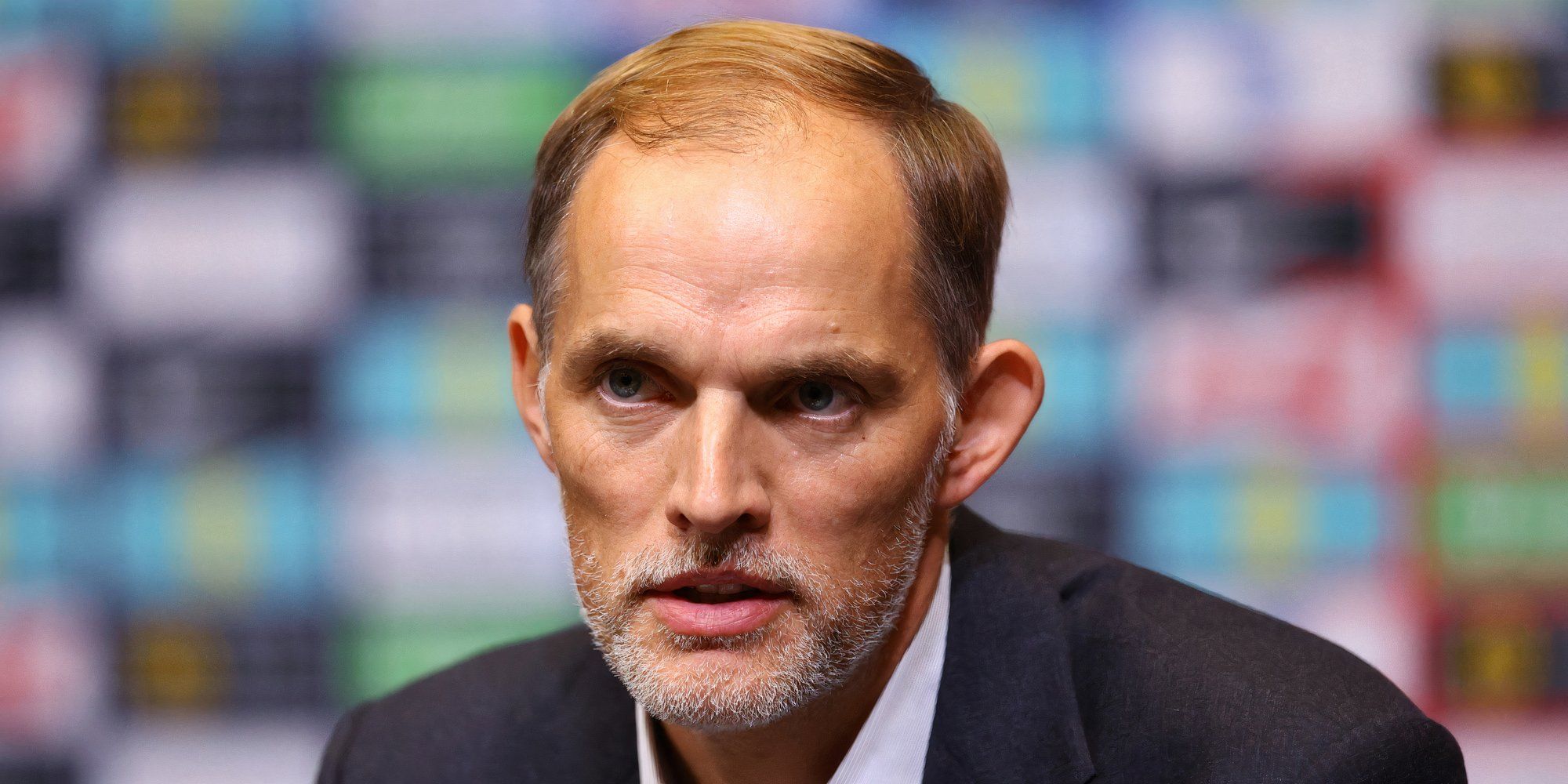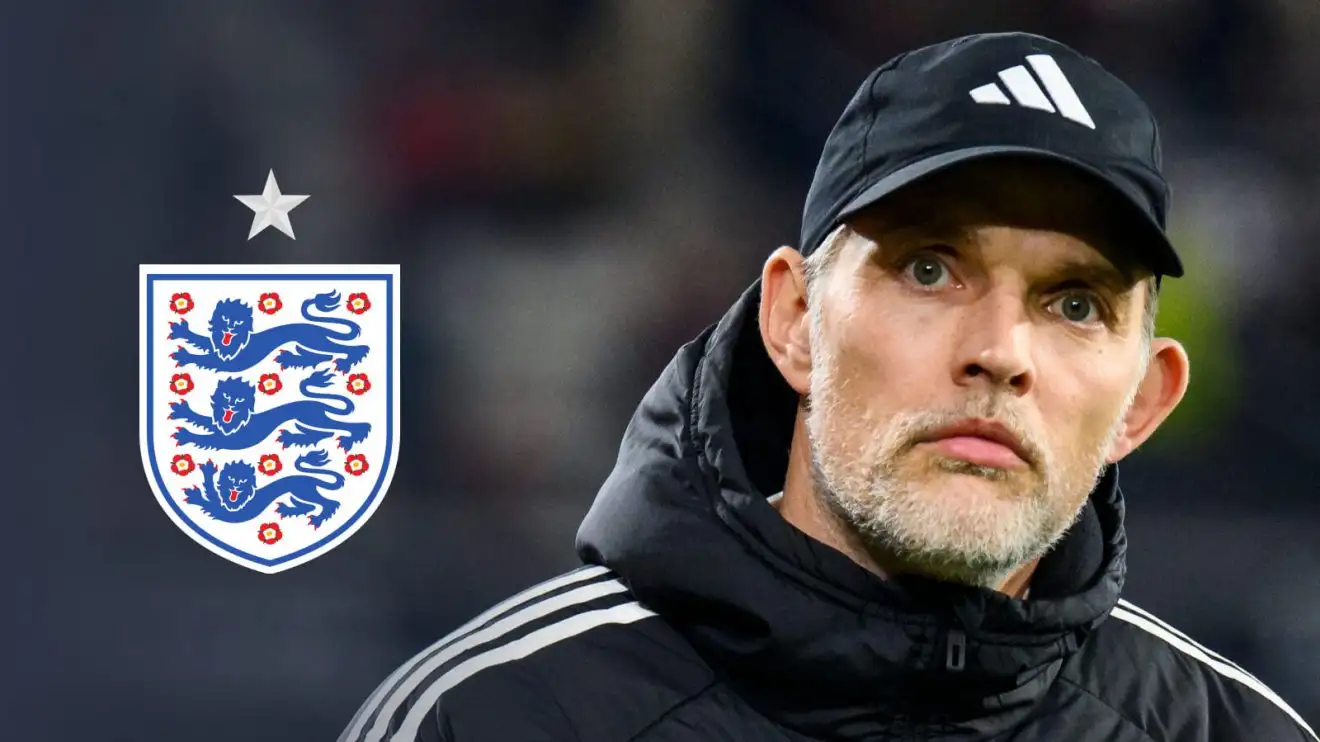Let me tell you something, folks. When Thomas Tuchel speaks, the football world listens. The German tactician has been making waves ever since he stepped into the Premier League, and his recent comments about England's communication issues have sparked a heated debate. Tuchel: England Must Improve Communication is more than just a statement; it's a call to action for the Three Lions. So, buckle up because we're diving deep into what Tuchel really means and why this matters for English football.
Thomas Tuchel isn't just another football manager; he's a mastermind who knows the intricacies of the game inside out. His tactical brilliance has been on full display, especially during his tenure at Chelsea. Now, when he points out England's communication flaws, we need to take notice. It's like when your favorite coach critiques your performance—it stings but it's necessary for growth.
This isn't just about Tuchel being critical; it's about him offering constructive feedback that could potentially elevate the national team. After all, communication is the backbone of any successful team, and if England wants to compete on the global stage, they need to step up their game. Let's explore what Tuchel's comments mean for the future of English football.
Read also:Brigitte Macron As A Child
Understanding Tuchel's Critique
Thomas Tuchel didn't just pull this out of thin air. His observations come from years of experience in high-pressure environments. He's seen firsthand how miscommunication can lead to costly mistakes on the pitch. So, what exactly does he mean by "England Must Improve Communication"? Well, it's not just about players shouting instructions to each other. It's about creating a cohesive unit where everyone is on the same page.
Breaking Down Communication in Football
Communication in football goes beyond verbal cues. It's about understanding your teammates' movements, anticipating their next actions, and reacting accordingly. Tuchel emphasizes the importance of non-verbal communication, which includes gestures, eye contact, and body language. These subtle cues can make all the difference in a high-stakes match.
Why Communication Matters in Football
Imagine a goalkeeper yelling instructions to defenders, only for them to miss the mark because they weren't paying attention. Or a midfielder failing to alert the striker about an incoming press. These are the kinds of scenarios that Tuchel wants to avoid. Effective communication can turn a mediocre team into a formidable force. It's the glue that holds everything together.
- Improves decision-making under pressure
- Enhances teamwork and cohesion
- Reduces errors and misunderstandings
England's Communication Challenges
Let's be honest here. England has had its fair share of communication blunders over the years. From defensive lapses to missed opportunities in attack, the team has struggled to find consistency. Tuchel's critique highlights a recurring issue that needs addressing. It's not about pointing fingers; it's about finding solutions.
Data-Driven Insights
According to recent studies, teams with strong communication networks tend to perform better in competitive matches. For instance, a report by UEFA found that teams with higher levels of on-field communication had a 20% higher success rate in key situations. These stats don't lie, folks. They underscore the importance of Tuchel's message.
How Tuchel Approaches Communication
Tuchel's approach to communication is rooted in his tactical philosophy. He believes in creating a culture where players feel empowered to express themselves on the pitch. This doesn't mean chaos; it means structured communication that aligns with the team's objectives. At Chelsea, he's implemented training drills specifically designed to improve communication skills.
Read also:Flixer
Key Strategies
- Implementing verbal and non-verbal communication drills
- Encouraging players to take ownership of their roles
- Fostering a culture of trust and accountability
Lessons from Other Successful Teams
When it comes to communication, some teams have set the benchmark. Take Manchester City, for example. Pep Guardiola's side is known for their seamless coordination on the field. Every pass, every movement, and every decision is executed with precision. This level of synchronization doesn't happen overnight; it's the result of meticulous planning and practice.
What England Can Learn
England can take a leaf out of Manchester City's book by focusing on the following:
- Building a strong team identity
- Investing in player development
- Adopting a proactive approach to problem-solving
The Role of Leadership
Leadership plays a crucial role in fostering effective communication. Captains and senior players need to step up and set the tone for the rest of the team. Tuchel believes that leaders should be the first to communicate and the last to criticize. This creates an environment where players feel comfortable expressing their thoughts and ideas.
Developing Leadership Skills
Leadership isn't something you're born with; it's something you develop over time. England's coaching staff can help players cultivate leadership qualities by:
- Providing mentorship opportunities
- Encouraging decision-making in training
- Creating scenarios that test leadership abilities
Implementing Tuchel's Vision
Turning Tuchel's vision into reality requires a collaborative effort from everyone involved. From the coaching staff to the players, every stakeholder has a role to play. It starts with identifying areas for improvement and implementing targeted interventions. This might involve bringing in external experts or revamping existing training programs.
Key Steps
- Conducting regular communication audits
- Integrating communication training into daily routines
- Monitoring progress and adjusting strategies as needed
The Future of English Football
Tuchel's critique is a wake-up call for English football. If the team wants to compete with the best in the world, they need to address their communication shortcomings. It's not just about winning matches; it's about building a legacy that future generations can be proud of. The path forward won't be easy, but with the right mindset and dedication, England can achieve greatness.
Looking Ahead
As the national team prepares for upcoming tournaments, they have an opportunity to put Tuchel's advice into practice. By prioritizing communication, they can create a team that is not only technically proficient but also tactically astute. The world will be watching, and the pressure is on.
Conclusion
Tuchel: England Must Improve Communication is more than just a headline; it's a rallying cry for change. The Three Lions have the talent, the resources, and the support to overcome their communication challenges. What they need now is the will to do so. As fans, we can play our part by staying engaged and offering constructive feedback.
So, what's next? Share your thoughts in the comments below. Do you agree with Tuchel's assessment? How do you think England can improve their communication? Let's keep the conversation going and help shape the future of English football.
Table of Contents
- Understanding Tuchel's Critique
- Breaking Down Communication in Football
- Why Communication Matters in Football
- England's Communication Challenges
- Data-Driven Insights
- How Tuchel Approaches Communication
- Key Strategies
- Lessons from Other Successful Teams
- What England Can Learn
- The Role of Leadership
- Developing Leadership Skills
- Implementing Tuchel's Vision
- Key Steps
- The Future of English Football
- Looking Ahead


